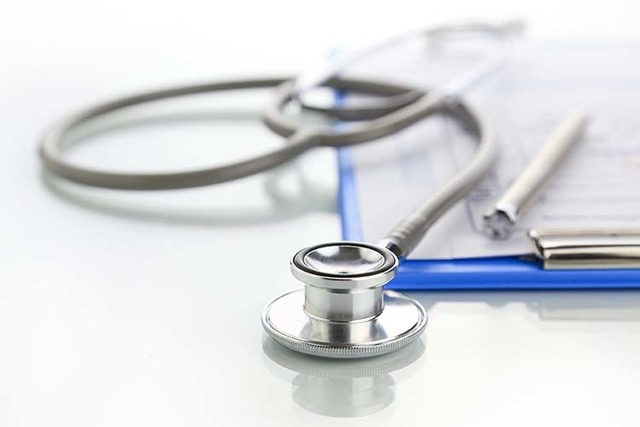New feature seeks to answer your health questions
Today, the Las Vegas Review-Journal starts a weekly feature that will try to match readers’ health-related questions with answers from Southern Nevada medical and health care professionals.
Confused about an odd term your doctor used? Hear about a study on the news and wonder what it means for you? Not sure what a particular drug you’re taking does?
Drop us a line and we’ll look for a medical professional to clear it all up for you. Understand, however, that we’ll take general questions, but won’t ask for a diagnosis, second opinion or individualized treatment plan.
Send a short note with your question to: “Health Q&A,” Las Vegas Review-Journal, P.O. Box 70, Las Vegas, NV 89125-0070. Or, send an email to jprzybys@reviewjournal.com (put “Health Q&A” in the subject line). Either way, be sure to include your name, age, address and a daytime phone number.
Today, we begin with a quirky caution you’ll find on the informational sheets you receive with some prescription medications: Do not drink grapefruit juice, or even eat grapefruit, while taking the drug.
Scott Stolte, a doctor of pharmacy and dean of the College of Pharmacy at Roseman University of Health Sciences in Henderson, estimates that there are “at least 80, and probably more drugs” that contain the no-grapefruit caution.
Why? Because grapefruit and grapefruit juice can interact with some medications, causing, in some cases, dangerous results.
Stolte said grapefruit and grapefruit juice contain compounds that inhibit enzymes in the body that are responsible for breaking down, or metabolizing, drugs.
So drink grapefruit juice while taking the drug, and the drug will be metabolized more slowly, staying in your body longer and at higher concentrations than it’s meant to, creating the potential for harmful side effects. Follow your regular dosing schedule (one that assumes you’re not drinking grapefruit juice), and the chance of concentrating dangerously high levels of the drug in your body occurs, along with the potential of increasing, sometimes dangerously, the drug’s effects.
Note, too, that it’s not necessarily just grapefruit juice or grapefruit, Stolte says. “There are other fruits that have grapefruit as a hybrid component to them, and they can have the same interactions.”
Among common drugs that are susceptible to grapefruit-related problems are some statins used to treat high cholesterol, some painkillers, codeine, several drugs used in psychiatric treatment, the anti-anxiety mediation Valium, the anti-depressive Zoloft, calcium channel blockers used to treat high blood pressure and angina, and protease inhibitors used in treating HIV.
The good news, Stolte says, is that other, similar, drugs that carry less risk of a grapefruit interaction almost always can be substituted for the problematic drugs. In the meantime, though, read the literature that comes with your prescription medications and ask your doctor or pharmacist if in doubt.
A harmful interaction between a drug and grapefruit or grapefruit juice is potentially serious, Stolte adds, “and I think people tend to minimize how harmful it can be.”
Contact reporter John Przybys at jprzybys@reviewjournal.com or 702-383-0280.

















